
Catalog Advanced Search
-
Contains 18 Component(s), Includes Credits Includes Multiple Live Events. The next is on 08/20/2025 at 1:00 PM (EDT) Recorded On: 04/16/2025
Word of mouth was that our members wanted to hear more about IPC and oral health! APIC's partnership with ADS (previously OSAP) is back! Join us for a series focusing on infection prevention and control in the Dental setting.
Word of mouth was that our members wanted to hear more about IPC and oral health! APIC's partnership with ADS (previously OSAP) is back! Join us for a series focusing on infection prevention and control in the Dental setting.
See webinars in this series below. Please note, you will be registering for all webinars in this series. Each webinar offers 1 continuing education credit, totaling 4 credits for the series.
By registering for this webinar, you agree to be contacted by the Association for Dental Safety (ADS).
Back to Basics: Dental Unit Waterlines 101
CE: 1/IPU: 1
Thursday, March 27, 2025 @ 1 pm ET
Amanda Hill, BSDH, RDH CDIPC
Let’s face it: dental unit waterlines have been the talk of the town lately. However, with all the seminars and presentations out there, many dental professionals are still confused, wishing someone would simply tell them what to do and how often to do it. This course is here to clear the fog! Let’s go back to basics to give straightforward answers on how to maintain dental unit waterlines. You'll learn three simple steps to ensure safe water in your practice—no jargon, no confusion, just the essentials. Join us for a friendly, down-to-earth session that will empower you to take control of your waterlines. Let’s ensure your practice is as safe as possible—for you and your patients.
Learning Objectives:
Identify the key components and common issues related to dental unit waterline maintenance
Evaluate current waterline maintenance practices
Devise a plan for remediation in case of a failed test
Biofilms Inside and Out (of You)
CE: 1/IPU: 1
Wednesday, April 16 , 2025 @ 1 pm ET
Nancy Dewhirst, RDH
Beyond oral plaque and dental waterlines, microbial biofilms are interesting and important! Let’s use biofilm science to explore the role of biofilms in various chronic and resistant infections as well as balanced health. Identify sources of biofilms in fluids, equipment, and natural or built environments, and controllable routes of exposure. Linking oral, systemic and environmental biofilms with personal susceptibility provides context for dental water safety standards.
Learning Objectives:
Understand the microbial and physical nature of biofilms that contribute to chronic and resistant infections.
Identify and discuss biofilm diseases.
Explore strategies to manage dental office reservoirs for biofilms.
C-Qual Site Visits: Internal Site Visits to Improve Process and Practice
CE:1/IPU:1
Wednesday, August 20, 2025 @ 1 pm ET
Lisa Bozzetti, DDS, and Sarah Deines, PharmD, BCACP, CPHQ
In 2018, Virginia Garcia Memorial Health Center began internal site visits known as "C-Qual" (Compliance and Quality Assurance). Visits are considered an "everybody teach, everybody learn" opportunity, with findings shared with site leaders and senior leaders across the organization. The goal is to improve patient care & safety and ensure compliance with program requirements across our 20 community-based patient care locations. Multiple systems changes and successes have resulted from this twice-a-year internal site visit program. Although C-Qual visits cross multiple departments at Virgina Garcia, the process for surveying and addressing dental compliance are the emphasis of this webinar.
C-Qual promotes continuous survey readiness activities through structured, repeating, internal site visits that cross multiple healthcare service lines (medical, dental pharmacy) and was developed in response to inconsistent processes across clinic sites for programs with compliance requirements leading to underperformance during HRSA and state site visits, staff confusion and risk to patient safety. Creating an interdisciplinary, ongoing, internal site visit process allowed our organization to measure current state of practice across over 20 patient care locations, provide education on program requirements, identify areas of common concern across locations that needed centralized resources, and provide ongoing check-points for leaders to see progress over time. Site visits include multiple staff and leaders to review multiple programs in a short site visit. The team includes 6 to 8 "site visitors" who each review a different clinical program or area of compliance during a 1 hour visit with a 30 min report out to site leaders. For each C-qual visit, the team of reviewers document their findings and suggestions and report to site leadership teams before leaving the clinic. Over the past 6 years we have observed multiple improvements in our clinical program compliance, greater readiness for external audits, and implementation of organization-wide process improvement.
C-Qual visits have significantly strengthened the Virginia Garcia dental program by identifying key areas where current processes needed improvement. The assessments not only guided the team in making necessary changes but also has enhanced the ability to track and maintain compliance with OSHA and CDC regulations internally. As a result, dental care is safer for patients and team members.
Learning Objectives:Implement a continuous readiness internal site visit process across dental clinics and other service lines (when applicable) and multiple patient access locations in community-based settings.
Integrate team members into a regularly scheduled site-visit structure to maximize staff, leader and program learning.
Identify needs and develop process improvement plans based on data collected during internal site visits.
Opening a New Hospital Dental Suite: What Your IP Wants You to Know
CE:1/IPU:1
Wednesday, October 15, 2025 @ 1 pm ET
Margaret Gilman, MAS, CIC, FAPIC
This presentation will review the development and opening of a new dental suite inside of a pediatric hospital. Differences between community dentistry and hospital-based dentistry will be reviewed, specifically the requirements and regulations for each, as it is vital to understand why a hospital based dental practice is so vastly different. After that groundwork is laid, the presentation will begin with a background of the hospital’s dental practices, highlighting the growth not only of the clinical program but also of the infection control knowledge. Over time, the program evolved from having a community dentistry mindset to a hospital-based mindset when it comes to instruments and following instructions for use, preventative maintenance, and water management.
The presentation will pivot away from background to the development and construction of the new suite, in which details around the design of the suite, the physical construction of the suite, and the post-construction, pre-opening of the suite. Successes are highlighted, along with opportunities for improvement. The majority of the presentation will focus on the post-construction, pre-opening phase, as the majority of the dental and IP partnerships occur in this phase. Instruments will make or break your relationship between IPs and Dental suites and specific examples will be provided of constructive conflict around instrument such as mouth mirrors. Best practices for ensuring appropriate purchasing and approval of instruments, along with ensuring accurate and feasible instructions for use, are presented. Additional consultation and partnership between IP and dental suites would be the creation and oversight of new standard operating procedures, competencies, and pathways for all equipment and instruments, since the route for transporting soiled instruments for reprocessing will have to change when the physical location changes. The final focus is around processes, ensuring equipment and instruments are cared for in a highly reliable manner and a standardized documentation template is presented.
Conclusions drawn will include the importance of the IP and RN relationship, especially in hospital based dental suites, the criticality of the IPs involvement in instrument purchasing and policy development, and the recognition of the regulatory differences between community dentistry and hospital-based practices. The integration of Infection Preventionists and infection prevention practices in dental suites will lead to more successful processes and increase patient and staff safety.
Learning Objectives:Recognition of the importance of the relationship between Infection Prevention and Dental Suites.
Identify the regulatory differences between hospital-based and community-based dental practices.
Articulate the role of Infection Prevention in dental suites, with a focus on instruments and standard operating procedures.
Continuing Education (CE) Credit:
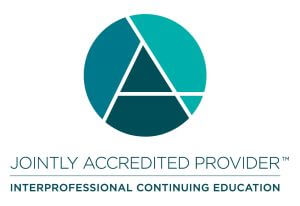
In support of improving patient care, The Association for Professionals in Infection Control and Epidemiology, Inc. (APIC) is jointly accredited by the Accreditation Council for Continuing Medical Education (ACCME), the Accreditation Council for Pharmacy Education (ACPE), and the American Nurses Credentialing Center (ANCC), to provide continuing education for the healthcare team.
Nursing:
- APIC designates this activity for 4 Nursing Contact Hours
Physicians:
- APIC designates this live course activity for a maximum of 4 PRA Category 1 Credits™
- Physicians should claim only the credits commensurate with the extent of their participation in the activity.
Dental Professionals:
- APIC designates this activity for 4 Continuing Education Credits.
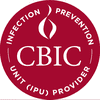
IPUs:
- APIC designates this activity for 4 infection prevention unit(s).
- For more information, please see https://www.cbic.org/CBIC/Recertify/Recertification-by-Continuing-Education.htm

Amanda Hill, BSDH, RDH, CDIPC
Amanda Hill, BSDH, RDH, CDIPC, is an enthusiastic speaker, innovative consultant, and award-winning author. A sought-after thought leader contributing invaluable and inspiring insights into the current trends in dentistry. Affectionately known as the Waterline Warrior, she brings over 25 years of clinical dental hygiene and education to dentistry. Recipient of OSAP’s Emerging Infection Control Leader award and an active participant with the advisory board for RDH magazine, Dentistry IQ, and OSAP’s Infection Control In Practice Editorial Review Board and membership committee, Amanda strives to make topics in dentistry accurate, accessible, and fun!
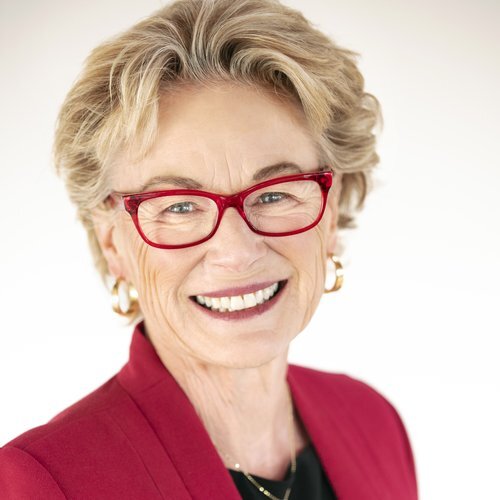
Nancy Dewhirst, RDH, BS
adjunct dental hygiene faculty
West Coast University
Nancy Dewhirst graduated from the University of Southern California, practiced dental hygiene for 20 years, is adjunct dental hygiene faculty at West Coast University, and is a member of Sigma Phi Alpha. She is consistently listed as one of the nation’s “Leaders in CE”, presents over 100 interactive workshops and seminars a year, is featured at major U.S. and Canadian Dental Conferences, and is a licensed California CE Provider. She is an ANSI/ADA Standards Program member, Editor-in-Chief of OSAP’s Infection Control In Practice, has published many articles in dental peer-reviewed journals, and has contributed to dental textbooks and ADA, OSAP, and State and University guidance documents.
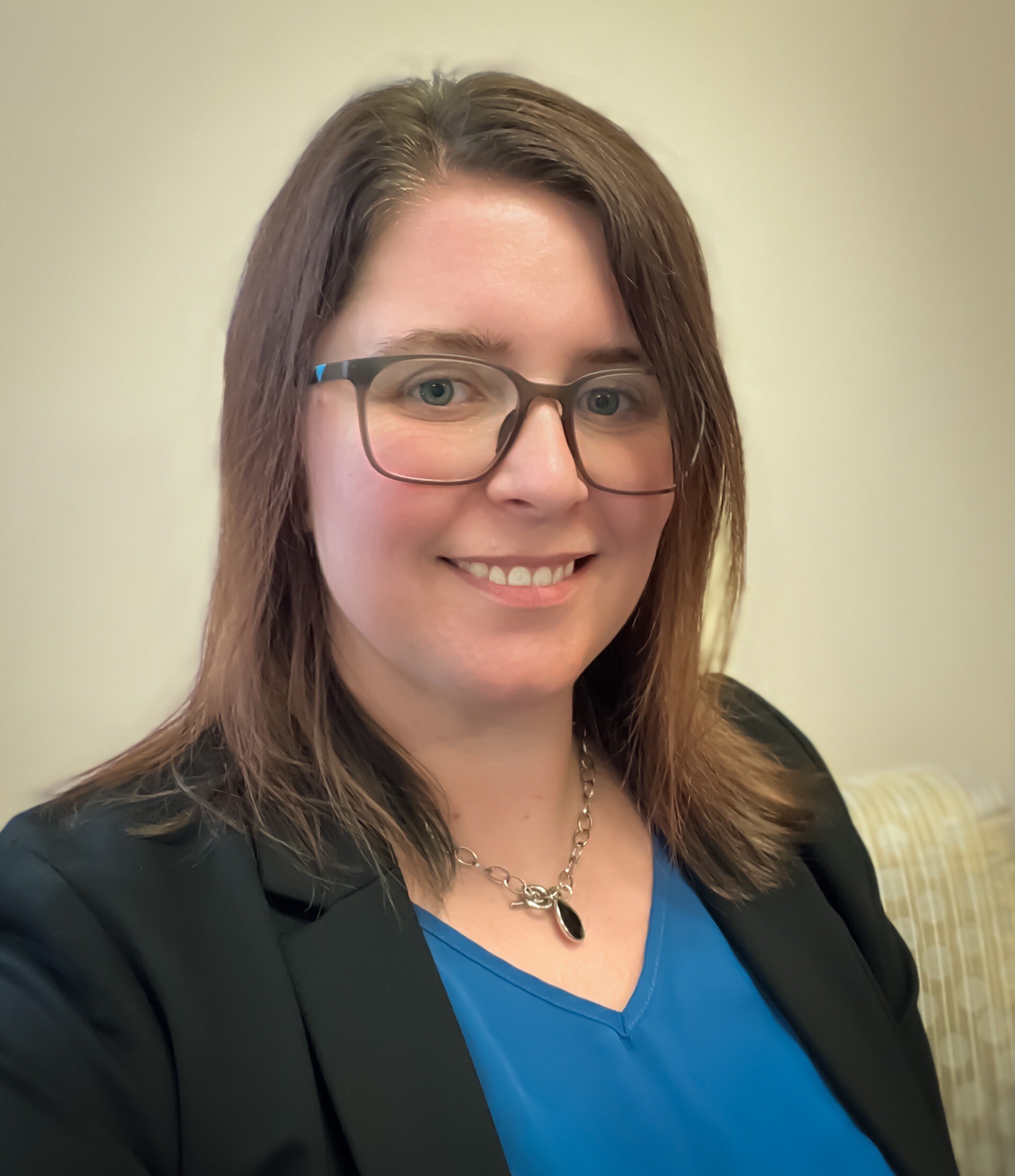
Sarah Stream, MPH, CDIPC, CDA, FADAA (Moderator)
Infection Preventionist and Dental Infection Control Specialist
Nebraska Department of Health and Human Services
Sarah Stream's journey in dentistry began in 2007 as a dental assistant, where her dedication and passion quickly propelled her forward. Over the years, she earned her CDA and further advanced her expertise, becoming a dynamic educator committed to public health and addressing the evolving needs of the dental community. With a specialization in dental infection control, she achieved her CDIPC certification and earned the prestigious 2024 Emerging Infection Control Leader Award from the Association for Dental Safety.
-
You must log in to register
- Non-member - Free!
- Member - Free!
- More Information
-
Contains 1 Component(s) Includes a Live Web Event on 07/16/2025 at 1:00 PM (EDT)
After its release in 2024, this webinar will discuss how the APIC/IPAC Ethical Framework is being used to help navigate complex infection prevention and control challenges with clarity and conscience.
CE: 0 / IPU: 0
Wednesday, July 16, 2025 @ 1 pm ET
Deb Patterson Burdsall PhD, RN-BC, CIC, LTC-CIP. FAPIC and Jerome Leis MD MSc FRCP
Infection Prevention is more than a science, and frequently must balance numerous potential risks while committed to the duty to prevent harm and keep people safe from infection. Ethical dilemmas arise daily in our work. After its release in 2024, this webinar will discuss how the APIC/IPAC Ethical Framework is being used to help navigate complex infection prevention and control challenges with clarity and conscience.
Continuing Education (CE) Credit:

In support of improving patient care, The Association for Professionals in Infection Control and Epidemiology, Inc. (APIC) is jointly accredited by the Accreditation Council for Continuing Medical Education (ACCME), the Accreditation Council for Pharmacy Education (ACPE), and the American Nurses Credentialing Center (ANCC), to provide continuing education for the healthcare team.
Nursing:
- APIC designates this activity for 0 Nursing Contact Hours
Physicians:
- APIC designates this live course activity for a maximum of 0 PRA Category 1 Credits™
- Physicians should claim only the credits commensurate with the extent of their participation in the activity.

IPUs
- APIC designates this activity for 0 infection prevention unit(s).
- For more information, please see https://www.cbic.org/CBIC/Recertify/Recertification-by-Continuing-Education.htm
-
You must log in to register
- Non-member - Free!
- Member - Free!
- More Information
-
Contains 1 Component(s) Includes a Live Web Event on 07/10/2025 at 1:00 PM (EDT)
Join us for an informative webinar led by the Certification Board of Infection Control and Epidemiology (CBIC) to learn about the Advanced Leadership Certification in Infection Prevention and Control (AL-CIP).
CE: 0 / IPU: 0
Thursday, July 10, 2025 @ 1 pm ET
Are you ready to elevate your career in infection prevention and control? Join us for an informative webinar led by the Certification Board of Infection Control and Epidemiology (CBIC) to learn about the Advanced Leadership Certification in Infection Prevention and Control (AL-CIP). This session will cover eligibility requirements, the portfolio-based application process, and tips for submitting a successful application. The next application cycle will take place July 10, 2025-August 15, 2025.
Continuing Education (CE) Credit:

In support of improving patient care, The Association for Professionals in Infection Control and Epidemiology, Inc. (APIC) is jointly accredited by the Accreditation Council for Continuing Medical Education (ACCME), the Accreditation Council for Pharmacy Education (ACPE), and the American Nurses Credentialing Center (ANCC), to provide continuing education for the healthcare team.
Nursing:
- APIC designates this activity for 0 Nursing Contact Hours
Physicians:
- APIC designates this live course activity for a maximum of 0 PRA Category 1 Credits™
- Physicians should claim only the credits commensurate with the extent of their participation in the activity.

IPUs
- APIC designates this activity for 0 infection prevention unit(s).
- For more information, please see https://www.cbic.org/CBIC/Recertify/Recertification-by-Continuing-Education.htm
-
You must log in to register
- Non-member - Free!
- Member - Free!
- More Information
-
Contains 4 Component(s) Includes a Live Web Event on 06/27/2025 at 1:00 PM (EDT)
Consulting 101 for IPs: How to Get Started Now! Unlock the gateway to the dynamic field of IP consulting with this captivating workshop tailored for individuals seeking to broaden their career horizons.
Consulting 101 for IPs: How to Get Started Now! Presented by APIC Consulting Services
Step into the world of infection prevention and control (IPC) consulting with Consulting 101 for IPs: How to Get Started Now! Whether you're exploring consulting as a part-time opportunity, starting your own business, or joining an established firm, this live session will provide you with foundational insights and practical tools to launch your IPC consulting career. Hear from two consulting experts: APIC Consultant Christen Hall, DNP, RN, FNP-BC, CIC, and Evelyn Bates, Senior Relationship Manager at APIC Consulting, as they share their knowledge and experience in the field.
Live Session Details
Date: June 27, 2025 Time: 1:00 PM – 3:00 PM EST
Format: Live Virtual Session (via Zoom)
Key Topics Covered
- Understanding what it means to be an independent contractor/consultant
- Essential steps for becoming a consultant
- Types of consulting work suited for IPs across practice settings
- Assessing your readiness, IPC focus, and specialty expertise
- Business setup essentials: insurance, accounting, technology, and more
- Navigating client contracts, scopes of work, estimates, and fee structures
This session includes 90 minutes of live instruction followed by a 30-minute interactive Q&A.
On-Demand Access
Can't attend live? The session recording and course materials will be available for 90 days after the live event for registered participants.
Workshop Presenters
- Christen Hall, DNP, RN, FNP-BC, CIC, APIC Consultant
- Evelyn Bates, Senior Relationship Manager, APIC Consulting Services
Start your consulting journey today!
Consulting 101 for IPs: How to Get Started Now! focuses on the foundational aspects of independent consulting and is not a requirement for becoming an APIC Consultant. If you’d like to be considered for our roster, complete our Consultant Roster Questionnaire to learn more.
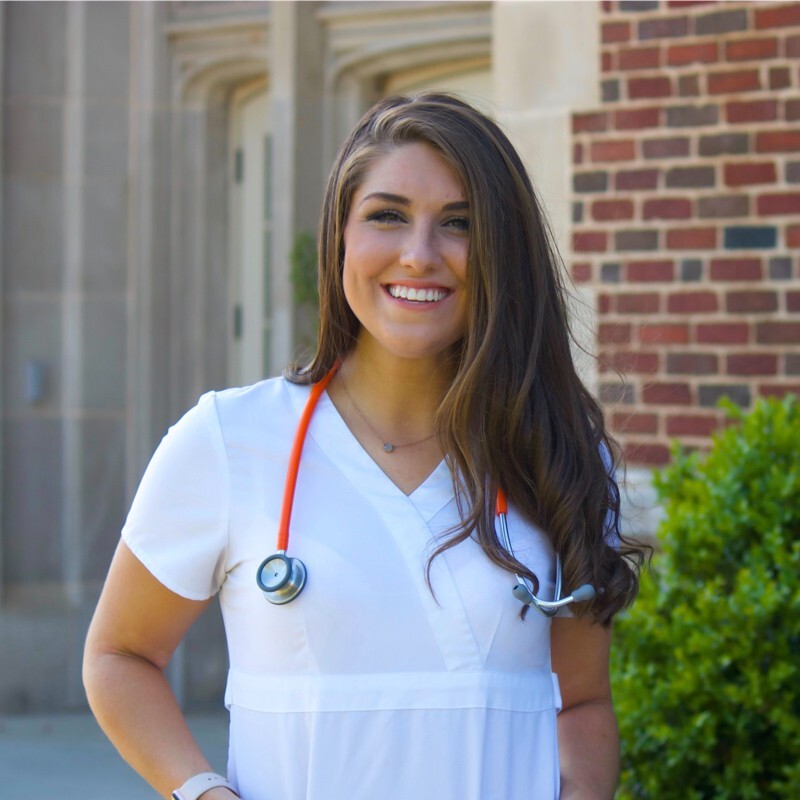
Christen Hall, DNP, FNP-BC, RN, CIC, CDP
Infection Prevention Consultant
Christen Hall is an Infection Prevention Consultant with the Association for Professionals in Infection Control and Epidemiology (APIC) Consulting. As an Infection Preventionist and Doctor of Nursing Practice, Christen has committed her advanced nursing career to the field of infection control and epidemiology. She is a board-certified registered nurse and family nurse practitioner. Additionally, Christen is board-certified in Infection Control and Epidemiology by the Certification Board of Infection Control (CBIC). Christen’s passion for research and quality improvement has led her to focus on the fields of antimicrobial resistance and antimicrobial stewardship. Christen has served in a variety of healthcare settings including public health, acute care, long term care, home health and hospice, and outpatient therapies, with a recent focus in on the barriers faced in long term care facilities.
Evelyn Bates
Senior Relationship Manager
APIC Consulting Services
Evelyn Bates is the Senior Relationship Manager at APIC Consulting, where she leverages her healthcare management expertise and experience in healthcare recruiting to connect with and support a roster of highly skilled Infection Prevention (IP) consultants. Evelyn's journey into the world of healthcare management began with her graduation from UT Dallas with a Bachelor of Science in Healthcare Management, where she developed a deep understanding of healthcare systems, operations, and regulations. Her commitment to and passion for the healthcare industry led her to launch her career as a healthcare recruiter, where she honed her talent for identifying and nurturing top-tier talent in the field. During her time as a recruiter, she gained invaluable insights into the evolving healthcare landscape, understanding the critical role of healthcare workers in safeguarding the health and well-being of patients and healthcare institutions.
In her current position as Relationship Manager at APIC Consulting, Evelyn plays a pivotal role in building strong connections between clients and APIC Consultants. Evelyn is dedicated to understanding the unique needs and challenges of healthcare institutions and supporting the seamless integration of APIC Consulting's elite consultants into client organizations. Her mission is to ensure that APIC Consulting remains at the forefront of healthcare excellence, consistently delivering top-tier infection prevention solutions to clients across the nation.
-
You must log in to register
- Non-member - $139
- Member - $99
- More Information
-
You must log in to register
-
Contains 2 Component(s) Recorded On: 06/04/2025
Join us for an engaging session filled with insider tips, essential info and a dash of fun to ensure you’re not just attending APIC25 but absolutely thriving there!
CE: 0 / IPU: 0
Wednesday, June 4, 2025 @ 1 pm ET
Jennifer Wroniewicz, CMP, DES, Director, Annual Conference
Join us for an engaging session filled with insider tips, essential info and a dash of fun to ensure you’re not just attending APIC25 but absolutely thriving there! Whether you’re a seasoned attendee or a first timer with a bundle of questions, this webinar is your golden ticket to making the most of your conference experience. From navigating the venue like a pro to highlighting must-attend sessions, we’ve got you covered. Plus, get a sneak peek at some of the groundbreaking innovations in infection control and epidemiology that will be showcased.
Why attend?
Unlock Secrets: Discover the best-kept secrets of APIC25, from exclusive events to networking opportunities that you won’t want to miss.
Ease Your Mind: Got questions?
Get answers! We’re here to make sure you feel prepared, confident, and ready for an unforgettable experience.
Maximize Your Time: Learn how to tailor your schedule to your interests and professional goals, ensuring you leave the event inspired and informed.
Don’t miss this chance to kickstart your APIC25 journey on a high note. It’s more than a webinar; it’s your start line for an epic adventure in the world of infection control and epidemiology. Mark Your Calendars!
This is one pre-event party you won’t want to miss. Secure your spot now and let’s get ready to make APIC25 the best one yet!
Continuing Education (CE) Credit:

In support of improving patient care, The Association for Professionals in Infection Control and Epidemiology, Inc. (APIC) is jointly accredited by the Accreditation Council for Continuing Medical Education (ACCME), the Accreditation Council for Pharmacy Education (ACPE), and the American Nurses Credentialing Center (ANCC), to provide continuing education for the healthcare team.
Nursing:
- APIC designates this activity for 0 Nursing Contact Hours
Physicians:
- APIC designates this live course activity for a maximum of 0PRA Category 1 Credits™
- Physicians should claim only the credits commensurate with the extent of their participation in the activity.

IPUs
- APIC designates this activity for 0 infection prevention unit(s).
- For more information, please see https://www.cbic.org/CBIC/Recertify/Recertification-by-Continuing-Education.htm
-
You must log in to register
- Non-member - Free!
- Member - Free!
- More Information
-
Contains 1 Component(s) Recorded On: 05/16/2025
Let's discuss the challenges faced by healthcare facilities in achieving cleaning and disinfection compliance.
CE: 0 / IPU: 0
Friday, May 16, 2025 @ 1 pm ET
Sharon Ward-Fore, BS, MS, MT(ASCP), CIC, FAPICLet's discuss the challenges faced by healthcare facilities in achieving cleaning and disinfection compliance. We'll learn about organism transmission, protocols for better outcomes, resources in cleaning and surface disinfection, and comparisons of different cleaning and disinfection technologies.
Objectives:
Explain the relationship between cleaning and disinfection and organism transmission.
Describe how protocols can help drive better outcomes.
Discuss the importance of resources in cleaning and surface disinfection.
Compare/contrast different cleaning and disinfection technologies.
By registering for this webinar you are agreeing to be contacted by APIC industry partner: Metrex
Continuing Education (CE) Credit:

In support of improving patient care, The Association for Professionals in Infection Control and Epidemiology, Inc. (APIC) is jointly accredited by the Accreditation Council for Continuing Medical Education (ACCME), the Accreditation Council for Pharmacy Education (ACPE), and the American Nurses Credentialing Center (ANCC), to provide continuing education for the healthcare team.
Nursing:
- APIC designates this activity for 0 Nursing Contact Hours
Physicians:
- APIC designates this live course activity for a maximum of 0 PRA Category 1 Credits™
- Physicians should claim only the credits commensurate with the extent of their participation in the activity.

IPUs
- APIC designates this activity for 0 infection prevention unit(s).
- For more information, please see https://www.cbic.org/CBIC/Recertify/Recertification-by-Continuing-Education.htm
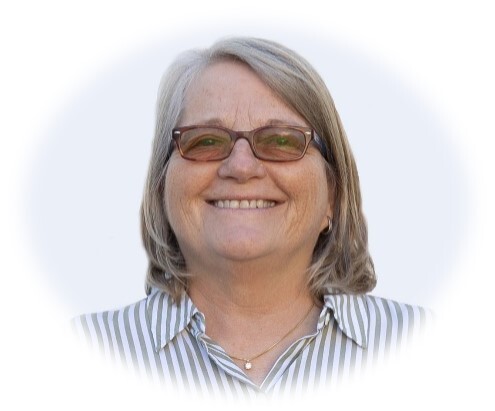
Sharon Ward-Fore, BS, MS, MT(ASCP), CIC, FAPIC
Infection Prevention Consultant
Essity
Sharon has worked in healthcare since 1985, in both acute care and industrial research and development. In R &D she was involved in microbiology research and development for surgical implantable devices, contact lenses and lens care solutions, pharmaceutical research and development, sterilization and disinfection cycle development and validation. She began her career as an Infection Preventionist at a Chicago Veterans Administration hospital, then moved on to an academic medical center acute care hospital in downtown Chicago.
Her areas of expertise include special pathogens training; personal protective equipment selection and training; emergency preparedness; surgical services; sterilization practices; disinfectants and cleaners, with a special place in her heart for environmental services. Medical device and equipment material compatibility with surface disinfectants is an area of great interest to her because patient and staff safety rely on compatibility and efficacy of products used in healthcare.
Sharon is the clinical advisor for Metrex where she helps with training and education for Metrex staff and their clients. She is also an independent infection prevention consultant; a member of the editorial advisory board of Infection Control Today magazine; and a Clinical Editor for The APIC Text.
She has a B.S. in Biology and Medical Technology, and a M.S. in Clinical Microbiology. She is Board Certified in Infection Control (CIC) and is an APIC Fellow (FAPIC).
-
You must log in to register
- Non-member - Free!
- Member - Free!
- More Information
-
Contains 1 Component(s) Recorded On: 05/13/2025
Don’t miss this insightful conversation with C-level executives Leah Binder, President and CEO of The Leapfrog Group, and Devin Jopp, CEO of APIC.
CE/IPU: 0
Recorded on: Tuesday, May 13, 2025 @ 1 pm ET
Leah Binder, President and CEO of The Leapfrog Group, and Devin Jopp, CEO of APIC
Don’t miss this insightful conversation with C-level executives Leah Binder, President and CEO of The Leapfrog Group, and Devin Jopp, CEO of APIC. In this leadership conversation, they’ll share their perspectives on how the new presidential administration presents both opportunities and challenges to advancing patient safety and infection prevention.
Continuing Education (CE) Credit:

In support of improving patient care, The Association for Professionals in Infection Control and Epidemiology, Inc. (APIC) is jointly accredited by the Accreditation Council for Continuing Medical Education (ACCME), the Accreditation Council for Pharmacy Education (ACPE), and the American Nurses Credentialing Center (ANCC), to provide continuing education for the healthcare team.
Nursing:
- APIC designates this activity for 0 Nursing Contact Hours
Physicians:
- APIC designates this live course activity for a maximum of 0 PRA Category 1 Credits™
- Physicians should claim only the credits commensurate with the extent of their participation in the activity.

IPUs:
- APIC designates this activity for 0 infection prevention unit(s).
- For more information, please see https://www.cbic.org/CBIC/Recertify/Recertification-by-Continuing-Education.htm

Devin Jopp, EdD, MS
CEO
APIC
Dr. Devin Jopp joined APIC as CEO on December 7, 2020. He brings to APIC more than two decades of association leadership with a wide array of experience and accomplishments from across the healthcare and nonprofit sectors. He has been recognized as one of the top 100 most influential healthcare leaders by Healthcare Management International Magazine and one of the top 50 healthcare IT experts by Health Data Management Magazine. Prior to APIC, he served as CEO for the American College Health Association, the principal leadership organization for advancing the health and well-being of the nation’s 20 million college students and their campus communities through advocacy, education, and research. He has also previously served as president and CEO for the Workgroup for Electronic Data Interchange (WEDI), a national nonprofit advisor to the Secretary of Health and Human Services focused on enhancing the exchange of healthcare information. Before joining WEDI, he served as chief operating officer for the Service Corp of Retired Executives, a national nonprofit organization that provides business mentoring and training to American entrepreneurs.

Leah Binder
President & CEO
The Leapfrog Group
Since 2008, Leah Binder has served as President & CEO of The Leapfrog Group, an award-winning national nonprofit based in Washington, D.C., representing employers and other purchasers of health care calling for improved safety and quality in hospitals. She is a regular contributor to Forbes.com, Harvard Business Review, and other publications, and is consistently cited among the most influential people and top women in healthcare. Ms. Binder has a bachelor’s degree from Brandeis University and two master’s degrees from the University of Pennsylvania, one from the Annenberg School of Communication and the other from the Fels Institute of Government. She lives in Maryland with her husband, Sam, and two children.
-
You must log in to register
- Non-member - Free!
- Member - Free!
- More Information
-
Contains 6 Component(s)
Microlesson Series: Long Term Care and Infection Prevention
Microlesson Series: Long Term Care and Infection Prevention
Continuing Education (CE) Credit:

In support of improving patient care, The Association for Professionals in Infection Control and Epidemiology, Inc. (APIC) is jointly accredited by the Accreditation Council for Continuing Medical Education (ACCME), the Accreditation Council for Pharmacy Education (ACPE), and the American Nurses Credentialing Center (ANCC), to provide continuing education for the healthcare team.
Nursing:
- APIC designates this activity for 0 Nursing Contact Hours
Physicians:
- APIC designates this live course activity for a maximum of 0 PRA Category 1 Credits™
- Physicians should claim only the credits commensurate with the extent of their participation in the activity.

IPUs:
- APIC designates this activity for 0 infection prevention unit(s).
- For more information, please see https://www.cbic.org/CBIC/Recertify/Recertification-by-Continuing-Education.htm
-
You must log in to register
- Member - Free!
- More Information
-
Contains 5 Component(s) Recorded On: 05/09/2025
Infection Prevention in Long-Term Care Microlearning Series
Infection Prevention in Long-Term Care Microlearning Series
Continuing Education (CE) Credit:

In support of improving patient care, The Association for Professionals in Infection Control and Epidemiology, Inc. (APIC) is jointly accredited by the Accreditation Council for Continuing Medical Education (ACCME), the Accreditation Council for Pharmacy Education (ACPE), and the American Nurses Credentialing Center (ANCC), to provide continuing education for the healthcare team.
Nursing:
- APIC designates this activity for 0 Nursing Contact Hours
Physicians:
- APIC designates this live course activity for a maximum of 0 PRA Category 1 Credits™
- Physicians should claim only the credits commensurate with the extent of their participation in the activity.

IPUs:
- APIC designates this activity for 1 infection prevention unit(s).
- For more information, please see https://www.cbic.org/CBIC/Recertify/Recertification-by-Continuing-Education.htm
-
You must log in to register
- Member - Free!
- More Information
-
Contains 1 Component(s) Recorded On: 05/08/2025
In this webinar, Kathleen McMullen, Board Certified Infection Prevention and Control expert, Executive Director for Infection Prevention at Mercy and Chair of APIC’s Corporate Director Council, will explore the latest literature, guidelines, and best practices in urine culturing. She will cover methods to refine the processes of collection and testing, with the goal to achieve optimal patient outcomes.
CE: 0 / IPU: 0
Thursday, May 8, 2025 @ 1 pm ET
Kathleen M. McMullen, MPH, CIC, FAPIC, FSHEA
Urine collection and culturing practices are crucial for accurately diagnosing Urinary Tract Infections (UTIs) and ensuring patients receive the most effective treatment, which helps prevent over-treatment, additional testing, and antibiotic resistance. Proper collection and culturing minimize contamination, leading to reliable results and better patient outcomes. In this webinar, Kathleen McMullen, Board Certified Infection Prevention and Control expert, Executive Director for Infection Prevention at Mercy and Chair of APIC’s Corporate Director Council, will explore the latest literature, guidelines, and best practices in urine culturing. She will cover methods to refine the processes of collection and testing, with the goal to achieve optimal patient outcomes.
Objectives:
Understand the importance of reducing urine culture contamination
Identify best practices for collection practices of urine intended for culture
Explore the benefits and drawbacks of lab workflows that automatically reflex a concerning urine specimen for culture based on urinalysis resultsBy registering for this webinar you are agreeing to be contacted by APIC industry partner: BD
Continuing Education (CE) Credit:

In support of improving patient care, The Association for Professionals in Infection Control and Epidemiology, Inc. (APIC) is jointly accredited by the Accreditation Council for Continuing Medical Education (ACCME), the Accreditation Council for Pharmacy Education (ACPE), and the American Nurses Credentialing Center (ANCC), to provide continuing education for the healthcare team.
Nursing:
- APIC designates this activity for 0 Nursing Contact Hours
Physicians:
- APIC designates this live course activity for a maximum of 0 PRA Category 1 Credits™
- Physicians should claim only the credits commensurate with the extent of their participation in the activity.

IPUs
- APIC designates this activity for 0 infection prevention unit(s).
- For more information, please see https://www.cbic.org/CBIC/Recertify/Recertification-by-Continuing-Education.htm
-
You must log in to register
- Non-member - Free!
- Member - Free!
- More Information







